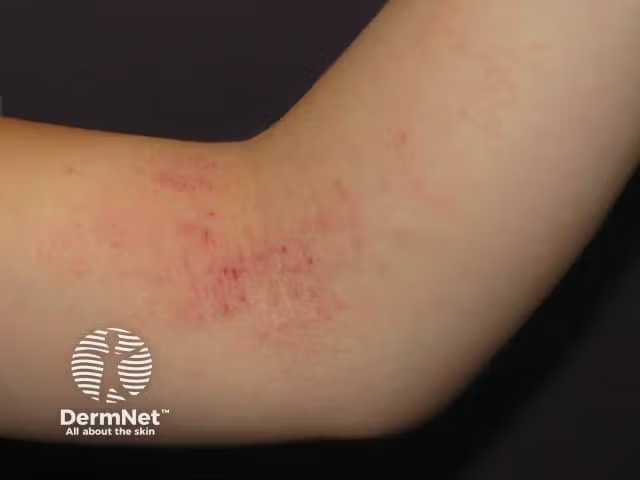- Case-Based Roundtable
- General Dermatology
- Eczema
- Chronic Hand Eczema
- Alopecia
- Aesthetics
- Vitiligo
- COVID-19
- Actinic Keratosis
- Precision Medicine and Biologics
- Rare Disease
- Wound Care
- Rosacea
- Psoriasis
- Psoriatic Arthritis
- Atopic Dermatitis
- Melasma
- NP and PA
- Skin Cancer
- Hidradenitis Suppurativa
- Drug Watch
- Pigmentary Disorders
- Acne
- Pediatric Dermatology
- Practice Management
- Prurigo Nodularis
- Buy-and-Bill
Video
Counseling AD Patients on Injection Concerns
Author(s):
Elizabeth Swanson, MD, shares pearls on how to communicate with AD patients who are uncertain about treatment through self-administered injection.
Jonathan I Silverberg, MD, PhD, MPH: Let's think specifically on the adolescent side. How do you deal with the counseling around the injection? Do you have any pearls on how to minimize the injection concerns?
Elizabeth Swanson, MD: I always tell the patients that there's a pre-filled syringe and an auto injector pen and I let them choose. I describe the pros and cons to them; that the pen is nice, you don't see the needle, but you can't control the speed at which it's injected. The syringe is nice because you can control the speed at which it's injected. The syringe is nicer if somebody is giving the shot to somebody else. The pen is nicer if you're giving it to yourself. I make sure my patients know there are both options available. I'll even give them a sample of one so they can try it to get experience with both. I also really highlight that 3 seconds of “ouch” is going to make them feel better all the other seconds of all the other days and a little bit of perspective allows you to see that that's the case. I see that even in my youngest patients. Even if they can't verbalize that understanding, they get it. They get that it's making them feel better and that doesn't make them like the shots, but even at a young age they understand why they're getting it and what it's doing for them. I really try to focus on the positive that's going to come as a result of enduring the ouch factor and just again bringing the atopic dermatitis to something they're thinking about once or twice a month rather than all the time.
Jonathan I Silverberg, MD, PhD, MPH: One of the things I often say, because I've done a lot of this research on skin pain in atopic dermatitis, is the pain of the shot is going to be less than the pain you're getting from your atopic dermatitis. Often there's this light bulb moment where it's like “oh I didn't think about that”. Usually there's that anticipatory fear the first time around and sometimes we'll even do it in the office to reassure their concerns, but once they do that then the patient feels that they can do this. It does give a certain degree of autonomy to the adolescent patients. I know for many adolescent patients they're going to prefer an oral over an injection and that's part of the shared decision making, but they're not always great about the daily adherence. I give them something once every two weeks and that's something that they can manage better so there's options for everyone. These are all important considerations.
Andrew Blauvelt, MD, MBA: I want to add something.
Jonathan I Silverberg, MD, PhD, MPH: Please.
Andrew Blauvelt, MD, MBA: I find that the needle phobia is has too much hype around it. People say they’re needle-phobic and they don't like needles, but what is the basis for that really? The basis for that often is because of phlebotomy, number 1 which hurts and it's deep.
Jonathan I Silverberg, MD, PhD, MPH: With a big 18 gauge.
Andrew Blauvelt, MD, MBA: With the big gauge and immunizations which are intramuscular injections, those can hurt too. The first thing I say is that the needle is much smaller than when you have your blood drawn. You're just barely under the surface of the skin. We're not going deep, and I think that's where a lot of the needle phobia comes. I don't like phlebotomy either and I've had subcutaneous injections before - it's completely different. That's one of the things I say.
Jonathan I Silverberg, MD, PhD, MPH: That's an excellent point. I will say it's rare, true needle phobia. I have one patient who's been struggling recently. They’re special needs and get extremely anxious from the shots. It's an unusual scenario. We've had to use benzodiazepines to calm the patient down and that worked great for dupilumab for a long time until I got the message two weeks ago from the patient’s mom saying that it doesn't matter how much of the benzodiazepines we're going to give anymore, he's not taking them. So now where we go from there, but that's a really rare scenario for the most part.
Transcript edited for clarity






